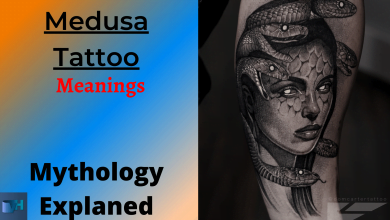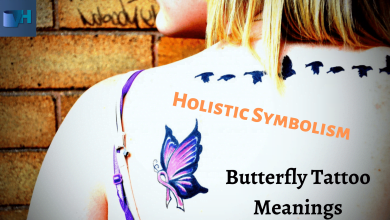
Falling in love with a best friend is not something that happens to everyone, but it can happen in some cases. Sometimes, this would be just platonic or one-sided love. But there are many cases where best friends actually fall in love with each other. Maybe your best friend is in love with you. Who knows?
Romantic movies where best friends fall in love with each other is one of the most favorite genres, not only in Hollywood but also in the cinemas of the whole world. If you are a movie lover and want to know the best movies where best friends actually begin to love each other, then you are in the right place.
So, here is the list of top 10 movies according to IMDB rating where best friends fall in love.
9: No Strings Attached (2011)

IMDB: 6.2
Starring:
Natalie Portman and Ashton Kutcher
Emma (Natalie Portman) and Adam (Ashton Kutcher) were childhood friends. They lost their contacts for a long time. When they met for the second time, they decided to take their relationship to the next level by having sex. But afraid of destroying their friendship, they decided to make their friendship just physical with no jealousy and no expectations.
But after some time of living in this kind of relationship, these two friends start to love each other secretly. What happens next? To answer this question, you have to watch this beautiful movie with great actors on Netflix.
<iframe style="width:120px;height:240px;" marginwidth="0" marginheight="0" scrolling="no" frameborder="0" src="//ws-na.amazon-adsystem.com/widgets/q?ServiceVersion=20070822&OneJS=1&Operation=GetAdHtml&MarketPlace=US&source=ac&ref=tf_til&ad_type=product_link&tracking_id=faiqazam-20&marketplace=amazon&region=US&placement=B00503C226&asins=B00503C226&linkId=7f5d35ea7de8050acac6e9cb03cb8bfb&show_border=true&link_opens_in_new_window=false&price_color=333333&title_color=0066c0&bg_color=ffffff">
</iframe>8: Just Go With It (2011)

IMDB: 6.4
Starring: Jennifer Aniston and Adam Sandler
Danny (Aram Sandler) a plastic surgeon in his thirties is still unmarried but pretends that he was married. When his new girlfriend demands to meet his ex-wife, he thinks that he is in big trouble now.
Danny enlists Katherine (Jennifer Aniston), his assistant, to pose as his soon-to-be-ex-wife. Instead of solving Danny’s problems, the lies create more trouble. Things became complicated and these two realized that they have feelings for each other.
The chemistry between the lead roles is outstanding. This movie is also available on Netflix.
<iframe style="width:120px;height:240px;" marginwidth="0" marginheight="0" scrolling="no" frameborder="0" src="//ws-na.amazon-adsystem.com/widgets/q?ServiceVersion=20070822&OneJS=1&Operation=GetAdHtml&MarketPlace=US&source=ac&ref=tf_til&ad_type=product_link&tracking_id=faiqazam-20&marketplace=amazon&region=US&placement=B003Y5H524&asins=B003Y5H524&linkId=dac6f81df49ad5367c55e45774774281&show_border=true&link_opens_in_new_window=false&price_color=333333&title_color=0066c0&bg_color=ffffff">
</iframe>7: Friends with Benefits (2011)

IMDB: 6.5
Starring:
Justin Timberlake and Mila Kunis
Jamie (Mila Kunis) who is our main character is a New York-based executive recruiter, who invites Dylan (Justin Timberlake), from Los Angeles, to take a job at the New York office.
Finding that they have much in common, the two become fast friends. Feeling deceived by a number of broken romances, Dylan and Jamie think that they have to quit for true love and focus on having fun.
However, things become complicated when they add sex to their relationship. These best friends fall in love with each other at the end of the movie.
The comedy of this movie is worth watching and it also included many comic scenes. Like the previous two movies, this one is also available on Netflix.
<iframe style="width:120px;height:240px;" marginwidth="0" marginheight="0" scrolling="no" frameborder="0" src="//ws-na.amazon-adsystem.com/widgets/q?ServiceVersion=20070822&OneJS=1&Operation=GetAdHtml&MarketPlace=US&source=ac&ref=tf_til&ad_type=product_link&tracking_id=faiqazam-20&marketplace=amazon&region=US&placement=B004EPZ0BG&asins=B004EPZ0BG&linkId=d07bbeb8cf5093e600247a3fba91af6a&show_border=true&link_opens_in_new_window=false&price_color=333333&title_color=0066c0&bg_color=ffffff">
</iframe>6: The DUFF (2015)

IMDB: 6.5
Starring:
Mae Whitman and Robbie Amell
When high-school student Bianca (Mae Whitman) learns that her classmates secretly know her as the DUFF — designated ugly fat friend.
She becomes desperate to reinvent herself, Bianca takes the help of Wesley (Robbie Amell), a charming jock. In order to save her school life from becoming a complete disaster, Bianca must find the confidence to overthrow a judgmental student (Bella Thorne) and revolutionize the school’s social order.
Then she realizes that now she has fallen in love with her best friend Wesley, who is helping her in improving her social image. This movie is available on Netflix.
<iframe style="width:120px;height:240px;" marginwidth="0" marginheight="0" scrolling="no" frameborder="0" src="//ws-na.amazon-adsystem.com/widgets/q?ServiceVersion=20070822&OneJS=1&Operation=GetAdHtml&MarketPlace=US&source=ac&ref=tf_til&ad_type=product_link&tracking_id=faiqazam-20&marketplace=amazon&region=US&placement=B00Z9NYU2W&asins=B00Z9NYU2W&linkId=774b4bfb4910a3dbe175da632b5e493e&show_border=true&link_opens_in_new_window=false&price_color=333333&title_color=0066c0&bg_color=ffffff">
</iframe>5: Some Kind of Wonderful (1987)

IMDB: 7.1
Starring:
Eric Stoltz and Mary Stuart
This is the oldest movie on this list released in 1987. The story of this classic movie is about Keith Nelson (Eric Stoltz), a high school boy, who tries to date a very popular girl Amanda Jones (Lea Thompson) with some aid from his best friend, Watts (Mary Stuart Masterson).
However, Amanda’s snobby ex-boyfriend, Hardy Jenns (Craig Sheffer) aims to destroy their plans. Matters are further complicated, when Watts realizes, she likes Keith as more than just a friend and tries to convince him to stop dating Amanda.
Will these two best friends fall in love? or it will be just one-sided love, for this, you have to watch the movie which is available on Hulu.
<iframe style="width:120px;height:240px;" marginwidth="0" marginheight="0" scrolling="no" frameborder="0" src="//ws-na.amazon-adsystem.com/widgets/q?ServiceVersion=20070822&OneJS=1&Operation=GetAdHtml&MarketPlace=US&source=ac&ref=tf_til&ad_type=product_link&tracking_id=faiqazam-20&marketplace=amazon&region=US&placement=B004EB0CI6&asins=B004EB0CI6&linkId=0536fd98fe875d43810e918922c577a9&show_border=true&link_opens_in_new_window=false&price_color=333333&title_color=0066c0&bg_color=ffffff">
</iframe>4: Definitely Maybe (2008)

IMDB: 7.1
Starring:
Ryan Reynolds, Abigail Breslin and Isla Fisher
Based in New York City, the movie is about a former political consultant, Will Hayes (Ryan Reynolds), a middle-aged man, is in the middle of a divorce.
When his young daughter (Abigail Breslin) asks him about his life before marriage, and that how he met and fell in love with her mother. Will flashes back to 1992 and rethinks his romances with three women. But he changed their names so that his daughter must guess which one of them became his wife.
In the climax, it is revealed that he falls in love with his best friend. Was he able to marry her? To know that you can watch this movie on Peacock.
<iframe style="width:120px;height:240px;" marginwidth="0" marginheight="0" scrolling="no" frameborder="0" src="//ws-na.amazon-adsystem.com/widgets/q?ServiceVersion=20070822&OneJS=1&Operation=GetAdHtml&MarketPlace=US&source=ac&ref=tf_til&ad_type=product_link&tracking_id=faiqazam-20&marketplace=amazon&region=US&placement=B009CFYFC8&asins=B009CFYFC8&linkId=3b57aad0e98dd5941568a3dec4ee3ed9&show_border=true&link_opens_in_new_window=false&price_color=333333&title_color=0066c0&bg_color=ffffff">
</iframe>3: Spider-man (2002)

IMDB: 7.3
Starring:
Tobey Maguire and Kirsten Dust
“Spider-Man” is a comic-book-based movie. The story is about a student Peter Parker (Tobey Maguire) who, after being bitten by a muted spider, gains superhuman powers and the spider-like abilities to cling to anything. He uses his abilities to fight crime.
Although this is a superhero movie, it also has a storyline where two best friends fall in love with each other. This movie is available on Prime Video.
<iframe style="width:120px;height:240px;" marginwidth="0" marginheight="0" scrolling="no" frameborder="0" src="//ws-na.amazon-adsystem.com/widgets/q?ServiceVersion=20070822&OneJS=1&Operation=GetAdHtml&MarketPlace=US&source=ac&ref=tf_til&ad_type=product_link&tracking_id=faiqazam-20&marketplace=amazon&region=US&placement=B000O19EWK&asins=B000O19EWK&linkId=eab34892ab70d07b94d392b0d10988a9&show_border=true&link_opens_in_new_window=false&price_color=333333&title_color=0066c0&bg_color=ffffff">
</iframe>2: 50/50 (2011)

IMDB: 7.6
Starring:
Joseph Gordon-Levitt and Anna Kendrick
Adam Lerner (Joseph Gordon-Levitt) our hero, takes good care of his health, so it was a surprise when he learns that he has spine cancer. His doctor gives him a 50/50 chance of survival, but Adam tries to remain upbeat. Adam starts seeing a therapist (Anna Kendrick), but their relationship threatens to cross the boundary between doctor and patient.
As the story progresses our main characters become good friends. But at the end of the movie, these two friends fall in love with each other. This is the most emotional movie on this list. You can watch this movie on Prime Video.
1: When Harry Met Sally (1989)

IMDB: 7.6
Starring:
Billy Crystal and Meg Ryan
On the top of this list, we have this movie and it definitely deserves this spot. In 1977, college graduates Harry Burns (Billy Crystal) and Sally Albright (Meg Ryan) share a car ride from Chicago to New York, during this ride they argue about whether men and women can ever truly be just friends.
Ten years later, Harry and Sally meet again at a bookstore, and in the company of their respective best friends, Jess (Bruno Kirby) and Marie (Carrie Fisher), attempt to stay friends without sex becoming an issue between them. This movie is available on Hulu.
<iframe style="width:120px;height:240px;" marginwidth="0" marginheight="0" scrolling="no" frameborder="0" src="//ws-na.amazon-adsystem.com/widgets/q?ServiceVersion=20070822&OneJS=1&Operation=GetAdHtml&MarketPlace=US&source=ac&ref=tf_til&ad_type=product_link&tracking_id=faiqazam-20&marketplace=amazon&region=US&placement=B00ARCOHNW&asins=B00ARCOHNW&linkId=edefed8d9f14f6fe15574151bb042161&show_border=true&link_opens_in_new_window=false&price_color=333333&title_color=0066c0&bg_color=ffffff">
</iframe>Conclusion:
The conversion of true friendship into love is not so common but it can be happen with anyone as it is evident from these movies.
So, this was our list of top 09 movies where best friends fall in love with each other. We hope that you will also like these movies as everyone did. With these wishes let’s say goodbyes to us. Thanks for reading this article.



